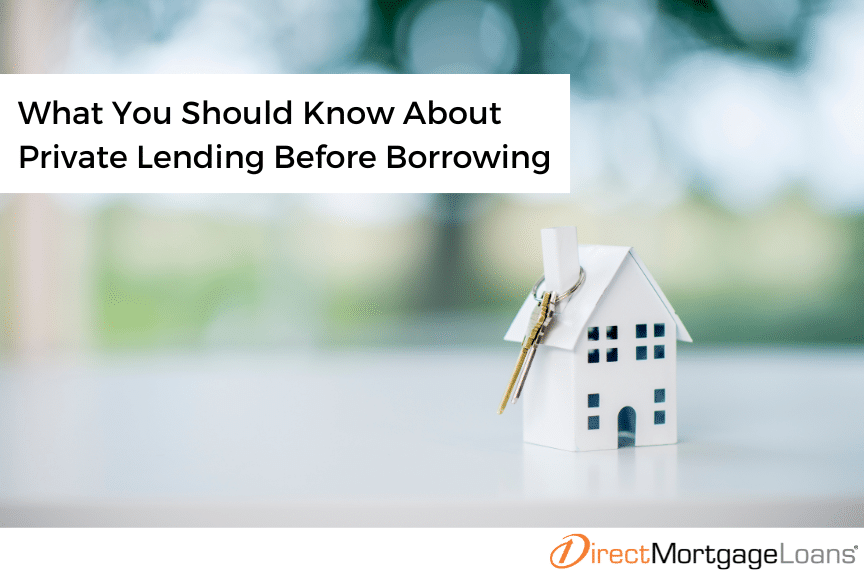How It Works: A Comprehensive Guide to Mortgage Lending for First-Time Purchasers
Navigating the globe of mortgage lending can be intimidating for first-time purchasers. Understanding the essential parts like principal, passion, and deposits is vital. In addition, recognizing the various kinds of mortgage lendings and the application process can greatly impact one's experience. By exploring essential variables that affect rate of interest, customers might uncover valuable insights. What else should they think about before making such a significant economic commitment?
Understanding Mortgage Basics
When first-time purchasers get in the domain of homeownership, recognizing mortgage essentials comes to be crucial for making informed choices. A home loan is essentially a car loan protected by the residential property being bought, allowing individuals to get a home without paying the complete rate upfront. Purchasers should be mindful of vital components, consisting of principal, passion, taxes, and insurance policy, often summed up as PITI. The principal is the quantity obtained, while passion is the cost of loaning that quantity, expressed as a portion. Tax obligations and insurance policy are additional expenses that can markedly affect monthly payments. Buyers ought to likewise take into consideration the funding term, typically 15 or three decades, which influences payment amounts and general passion paid. Comprehending credit rating is crucial, as they influence loan eligibility and passion prices. Understanding these basic concepts empowers first-time buyers to browse the mortgage landscape with confidence and make selections that line up with their monetary goals.
Kinds Of Mortgage Loan
When thinking about mortgage choices, newbie customers frequently come across two key kinds: fixed-rate and variable-rate mortgages. Fixed-rate home loans provide security with regular settlements over the loan's term, while variable-rate mortgages can provide reduced first rates that might fluctuate gradually. Understanding these distinctions is crucial for making an informed choice.
Fixed-Rate Home mortgages
Fixed-rate home mortgages give security and predictability for novice buyers maneuvering the complexities of home financing. With a fixed-rate mortgage, the rates of interest remains constant throughout the loan term, typically varying from 15 to 30 years. This constant price allows purchasers to plan their budgets efficiently, knowing that their regular monthly settlements will not rise and fall. New purchasers take advantage of this structure as it removes unpredictability in long-term financial commitments. In addition, fixed-rate home loans typically feature reduced preliminary rates compared to adjustable-rate choices, making them an eye-catching option for those wanting to develop home equity over time. In general, fixed-rate home loans use an uncomplicated path to homeownership, suitable for individuals seeking lasting financial safety and security.
Adjustable-Rate Mortgages
For new homebuyers seeking adaptability, variable-rate mortgages (ARMs) can provide an attractive alternative to fixed-rate car loans. ARMs typically offer lower preliminary rate of interest prices, making month-to-month repayments extra inexpensive in the early years. Nonetheless, these rates rise and fall after an initial fixed duration, which can bring about enhanced payments with time. Debtors ought to comprehend the index and margin that establish future price modifications. Commonly, ARMs have modification durations of one, three, or 5 years, with routine caps to limit how much prices can raise at each modification. While ARMs can be advantageous for those intending to market or re-finance prior to the rate adjusts, they also carry dangers if market conditions transform substantially. Thorough research study is vital for informed decision-making.
The Mortgage Application Process

Trick Factors Affecting Rate Of Interest

Deposits and Closing Costs
Understanding down payments and shutting costs is crucial for new homebuyers, as these expenses greatly impact the general cost of a home mortgage. A down payment is the first amount paid towards the home's acquisition cost, normally revealed as a portion. It can range from as low as 3% to 20% or even more, relying on the financing type and lender demands. A bigger deposit can decrease monthly mortgage settlements and eliminate exclusive mortgage insurance coverage (PMI), which safeguards loan providers in instance of default.Closing costs, on the various other hand, incorporate numerous costs incurred during the home-buying procedure. These may visit consist of financing origination charges, evaluation costs, title insurance coverage, and lawyer charges, typically amounting to 2% to 5% of the home's acquisition price. Novice buyers should allocate both down settlements and shutting prices to guarantee they can secure their mortgage and efficiently navigate the home-buying process.
Tips for First-Time Homebuyers
What vital tips can first-time buyers comply with to browse the often tough process of buying a home? Setting a sensible spending plan is essential. Purchasers should assess their monetary scenario, including income, expenses, and prospective mortgage repayments. Next, acquiring pre-approval for a mortgage can offer clarity on what one can pay for and enhance their placement when making an offer.Researching communities is just as crucial; buyers should take into consideration aspects such as services, institutions, and future advancements. In addition, it is recommended to function with a certified real estate agent that can supply beneficial understandings and support throughout the purchasing process.Home assessments ought to not be overlooked, as they can uncover concealed issues that might impact lasting complete satisfaction. Finally, buyers should continue to be person and flexible, understanding that locating the appropriate home might take time. By adhering to these tips, first-time buyers can approach the market with confidence and understanding.
Regularly Asked Concerns
What Files Are Required for Mortgage Pre-Approval?
For mortgage pre-approval, individuals generally need to give earnings verification, work background, credit records, income tax return, bank declarations, and details of any financial obligations (Private Mortgage Lenders Savannah GA). These papers help lending institutions analyze financial capability and determine car loan eligibility
Can I Get a Home Mortgage With Bad Credit Scores?

Lots you can try this out of lending institutions take into consideration candidates with poor credit scores, though terms might differ. Greater rates of interest or larger down payments can be needed. Discovering alternatives with specialized lenders or government programs can also boost possibilities for approval.
How much time Does the Mortgage Approval Process Take?
The mortgage approval procedure usually takes in between 30 to 45 days. Variables affecting this timeline include the loan provider's efficiency, the borrower's financial documents, and the intricacy of the loan application. Hold-ups might happen because of added needs.
What Occurs if I Miss a Home Mortgage Payment?
If a mortgage payment is missed, late charges might be incurred, and credit report can suffer. Long term non-payment might lead to repossession proceedings, triggering the lender to reclaim the residential property after a series of warnings.
Can I Re-finance My Mortgage Later On?
Refinancing a mortgage later on is often possible, enabling property owners to change their loan terms, rate of interest, or regular monthly repayments. Qualification depends on credit report ratings, present market conditions, and the existing mortgage's terms.